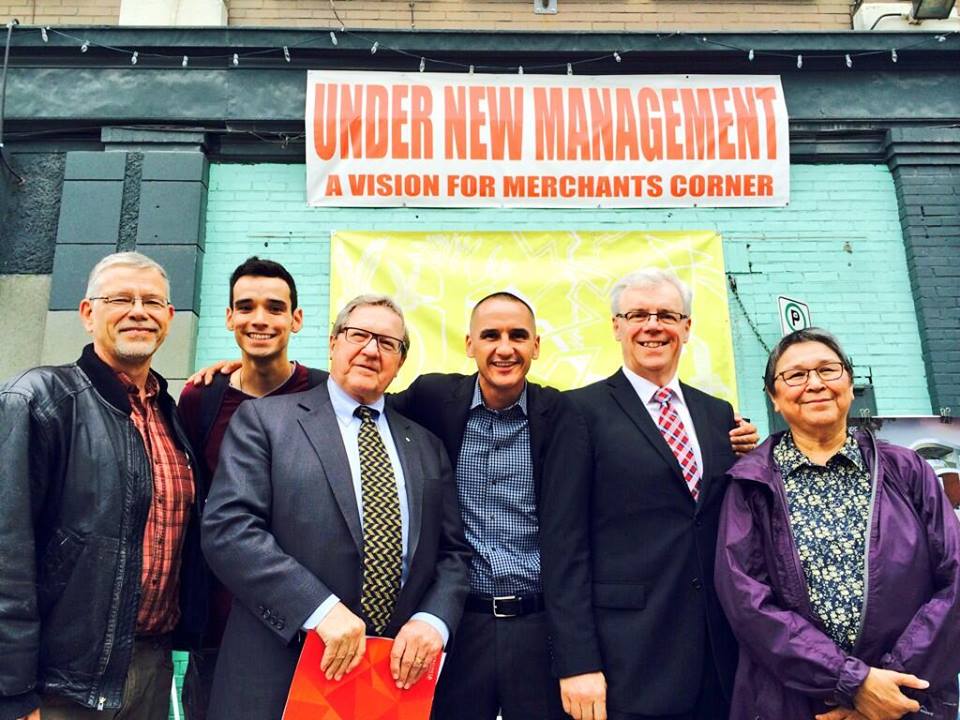An issue that needs to be addressed in the forthcoming throne speech on November 20, is the persistence in Manitoba of a deep, complex and damaging poverty.
Important gains have been made in recent years in the fight against poverty, especially in Winnipeg’s inner city. They often emerge in the following way: people in an inner-city community identify a means of responding to a poverty-related problem, and put together a strategy based on their hands-on, “close-to-the-ground” experiential knowledge; and once a plan is in place and is determined to be viable, the provincial government invests in that community-driven initiative. This kind of partnership has produced some significant gains of late. Examples — there are many more — include: the remarkable transformation in Lord Selkirk Park, a North End public housing complex where the community mobilized and the provincial government invested, leading to big gains in a neighbourhood once thought by many to be a lost cause; the many productive investments by Neighbourhoods Alive!, including core funding for Neighbourhood Renewal Corporations that do important anti-poverty work in low-income communities; the pioneering efforts of organizations like Building Urban Industries for Local Development (BUILD) and Manitoba Green Retrofit (MGR) in moving into useful paid employment significant numbers of inner-city residents who would otherwise have difficulty finding jobs; the highly successful adult educational initiatives on Selkirk Avenue, soon to be added to by the redevelopment of the old Merchants Hotel into Merchants Corner; the significant numbers of social and affordable housing units that have been and are being built by the Province; and the introduction of the Rent Assist program, which when fully rolled out will produce results that will place Manitoba at the cutting edge of the fight against poverty.
This is not to suggest that the problems of poverty have been solved. Much more remains to be done. But the foundation for transformational change has been laid, and should be built upon. Here are some things that ought to be part of the Throne Speech, based on what the practical experience of the past decade and more has shown to work well.
Education
Educational outcomes in Manitoba, as measured recently by the Pan- Canadian Assessment Program, are weak relative to other provinces. A big part of the reason is that poverty in Manitoba remains so high — poverty consistently produces poor educational outcomes. Here are two things that can be done. First, dramatically expand basic literacy programming, especially in low-income areas. There are approximately 285,000 Manitobans whose literacy levels are below that needed to function fully in society. Second, Adult Learning Centres (ALCs) that offer the Mature Grade 12 work well, especially those in low-income areas where they produce significant gains. Increase their funding, and target it at low-income areas. More adult literacy initiatives and ALCs will mean more adults moving into the paid labour force. Further, the evidence is that the children of adults pursuing education do better in school, and also that once an adult starts doing well in an educational program, she or he brings cousins and sisters and friends into the same program. The knock-on effects of increased spending on adult literacy and education are substantial.

Brandon Energy Efficiency Program (BEEP) workers renovating inner-city homes in Brandon.
Jobs
A big problem in Winnipeg’s inner city and many rural and northern areas is large numbers of people outside the labour market entirely. This creates many problems. In Winnipeg’s inner city, programs have been built that work well in moving low-income people from outside the labour market into paid employment. BUILD and MGR for example, are highly effective, as are organizations like Urban Circle Training Centre. They build skills and enable people to work in ways that are productive and useful. Steady employment strengthens families, producing a range of additional societal benefits. The provincial government has said it will expand effective and productive initiatives such as these in various ways, including the Manitoba Social Enterprise Strategy. The Throne Speech should commit to continue and expanded investment in the job creation initiatives that have proven to be so effective in the inner city.
Housing
Decent quality affordable housing can serve as the springboard for low-income families seeking to take advantage of opportunities to improve their circumstances. The provincial government has been especially strong in producing such housing. The Province should continue to invest in existing and new social housing, and fully roll out the Rent Assist Program announced in the last Budget. These initiatives alone have the potential to be transformational.
Child care
The provincial government has been effective in producing additional childcare spaces and improving wages and benefits for child care workers. This enables more parents, especially women to enter the paid labour force, and the evidence is clear that children benefit from access to child care. In addition, the provincial government has piloted the Abecedarian model of childcare in Lord Selkirk Park, and early evaluations suggest that it is producing dramatically positive results, both for the children and for their parents. Expand childcare initiatives, and target them at low-income areas where they will produce the greatest benefits.
This kind of approach to poverty is conceptually simple. Create educational and employment opportunities tailored to the realities of low-income adults, using methods that have proved successful, and provide the housing and child care supports that enable people to take advantage of these opportunities. In Manitoba, this is a matter of investing still more in what is already proving successful.
As more and more people are moved through educational opportunities and into the paid labour force they pay taxes, adding to government revenues, while costly government expenditures on social services, corrections and health care go down. We all benefit.
The throne speech ought to commit the provincial government to doing more of this. It works.
Jim Silver is Professor and Chair of the University of Winnipeg’s Department of Urban and Inner-City Studies. His new book, About Canada: Poverty will be launched at McNally Robinson Bookstore December 1, 2014.



